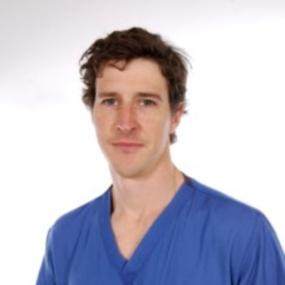Career Story: ICM in a South-West DGH

I work in a progressive 600 bedded District General Hospital in Somerset, where I am one of a team of eight intensivists that look after a 12 bedded critical care unit. District General Hospitals offer a unique blend of quality of life and long term professional satisfaction for intensivists. ICM job plans in my trust are focussed on ensuring continuity of care and providing a sustainable work life balance. One consultant is nominally in charge of the unit from Monday - Thursday, and another covers Friday - Sunday, handing over Monday morning. A second consultant also covers the unit weekday mornings, to help with rounding, decision-making and referrals. Tuesday, Wednesday, and Friday nights are covered by other consultants not on for the week.
The patient case mix is fairly equally split between surgical and medical admissions which offers a broad spectrum of clinical presentations. For the majority of the consultant group, clinical time is split approximately 60:40 between ICM and other clinical commitments (such as anaesthesia) on a 10 PA job plan. This balance is adjustable as long as the ITU rota is covered, so people drop anaesthetic sessions if they wish to reduce their PAs. The intensivists are a cohesive group. We try to be flexible and accommodating to each other as this will of course work reciprocally in our favour.
One of the obvious attractions of working in a DGH is that it encourages close professional relationships with colleagues from other specialties. It is hard to walk down the main hospital corridor or grab a coffee without stopping to talk to someone, and I believe this degree of close and easy communication with both medical and nursing staff makes a significant difference to patient outcomes, as well as maintaining personal wellbeing.
The impact on family and professional life
Another significant reason I chose to work in a DGH was the opportunity to live and bring up my children in the countryside. I live on a farm and despite year round hard work this has a hugely positive impact on my work/life balance. Like a good number of intensivists physical exercise is important to me, and whenever I am able I cycle to work through an Area of Outstanding Natural Beauty.
Regardless of where one works there is always the opportunity to pursue other challenges outside the clinical sphere; amongst my other commitments I sit on a national FICM committee, examine for the FICM Final and contribute to patient care and the strategic direction of my Trust as a Clinical Director.
A day in the life
A day in the life of an Intensivist Intensivists are part of a large specialist team that provide care for the sickest patients in the hospital in a complex, dynamic environment. The successful intensive care physician requires a sound understanding of basic sciences and medicine, diagnostic acumen, proficiency in a number of invasive procedures and a broad range of non-technical skills.
Referrals to critical care may come from anywhere in the hospital. As an intensivist, you may be called to review a deteriorating patient with sepsis on the medical ward who needs respiratory and circulatory support, to resuscitate a polytrauma patient in the emergency department, or to assess a shocked patient following surgery. The diverse nature of critically ill patients means that one of the rewarding aspects of being an intensivist is delivering patient care in collaboration with colleagues from across the entire spectrum of medical specialities - often with several at the same time. Although our patients are the sickest in the hospital and may present with a myriad of diagnostic and management challenges, it is focusing on providing safe and high quality basic care that is the bedrock of a successful ITU.
The day of the intensivist often has a familiar structure - but there are few places in the hospital where the adage every day is different is more apt. The morning multidisciplinary handover is a forum to review all recent imaging, blood results and investigations, and allows for a detailed update and discussion of each patients progress. A safety briefing helps determine any potential hazards and the relevant activity expected both on the unit and in the wider hospital for the day, as well as highlighting if there are patients suitable for trial inclusion, or any complex or long term patients requiring discharge plans. A thorough clinical ward round forms the foundation of decision-making and planning of daily goals for each patient as well as a good opportunity for teaching.
The ICU is an ideal place to develop and use innovative monitoring and therapeutic technologies, and provides an environment to develop skills with echocardiography and ultrasound, as these modalities increasingly change the management of critically ill patients. Common procedures that require proficiency on ITU include invasive line insertion (including catheters for renal replacement therapy or cardiac output monitoring to guide inotropic, vasopressor and fluid therapy), bronchoscopy, chest drain insertion and percutaneous tracheostomy.
Intensive Care Medicine has a range of sub-specialties, and offers the opportunity to develop specialist skills in areas such as neuro intensive care, burns, paediatric and cardiothoracic intensive care. Important areas outside the ITU where the intensive care team are also integral to patient care include outreach and critical illness rehabilitation.
Discussing and delivering end of life care are some of the most challenging and rewarding skills for the intensive care doctor to develop, and these skills are continually developed throughout one’s career. Other non-technical skills such as ethically sound, non-biased decision-making, and communicating clearly and empathically with patients and relatives are of paramount importance.
Intensive Care Medicine is constantly expanding and evolving as a specialty. It offers the specialist doctor a chance to develop a unique set of skills in an exciting and dynamic setting - in which it is difficult to be bored!
Share your ICM story
Do you have a career story you'd like to share with us? If so we'd love to hear from you.
